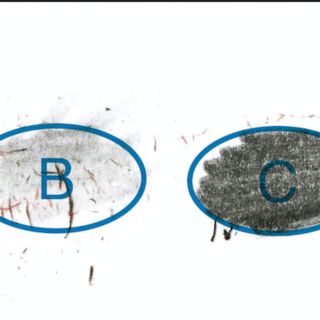
Data Alone Is Not Enough: The Evolution of Data Architectures
Data, data, data – it’s long been a buzzword in the industry, whether big data, streaming data, data analytics, data science, even AI & machine learning — but data alone is not enough: it takes an entire system of tools and technology to extract value from data. A multibillion dollar industry has emerged around data tools and technologies. And with so much excitement and innovation in the space: how exactly do all these tools fit together? This podcast – a hallway style conversation between Ali Ghodsi, CEO and Founder of Databricks, and a16z general partner Martin Casado – explores the evolution of data architectures, including some quick history, where they’re going, and a surprising use case for streaming data, as well as Ali’s take on how he’d architect the picks and shovels that handle data end-to-end today. Stay Updated:Find a16z on XFind a16z on LinkedInListen to the a16z Show on SpotifyListen to the a16z Show on Apple PodcastsFollow our host: https://twitter.com/eriktorenberg Please note that the content here is for informational purposes only; should NOT be taken as legal, business, tax, or investment advice or be used to evaluate any investment or security; and is not directed at any investors or potential investors in any a16z fund. a16z and its affiliates may maintain investments in the companies discussed. For more details please see a16z.com/disclosures. Hosted by Simplecast, an AdsWizz company. See pcm.adswizz.com for information about our collection and use of personal data for advertising.
23 Okt 202021min

Designing for, Marketing to, and Partnering With Gen Z
Gen Z—those born between 1995 and 2010—now makes up 35 percent of the population and represent $143 billion dollars in spending power. This episode is all about how brands can better understand, collaborate with, and resonate with this hugely influential segment of consumers. Our guest, Tiffany Zhong, is the 24-year-old CEO of Zebra IQ, a company that helps brands interpret the wants of Gen Z consumers and helps Gen Z creators turn their content into businesses. In its recent Gen Z Trends Report, her company highlights important cultural trends and Gen Z behaviors based on a trove of proprietary research. In this conversation, Tiffany and a16z general partner Connie Chan discuss the key differences between Gen Z and millennials, the growing power of short-form video on platforms like TikTok and YouTube, our changing perception of luxury, and how Gen Z is shifting the paradigm around money, education, and work.The pair breaks down how brands can partner with Gen Z influencers in a way that’s compelling, not cringeworthy, and why when it comes to memes and the art of emoji, you’re probably doing it wrong. Stay Updated:Find a16z on XFind a16z on LinkedInListen to the a16z Show on SpotifyListen to the a16z Show on Apple PodcastsFollow our host: https://twitter.com/eriktorenberg Please note that the content here is for informational purposes only; should NOT be taken as legal, business, tax, or investment advice or be used to evaluate any investment or security; and is not directed at any investors or potential investors in any a16z fund. a16z and its affiliates may maintain investments in the companies discussed. For more details please see a16z.com/disclosures. Hosted by Simplecast, an AdsWizz company. See pcm.adswizz.com for information about our collection and use of personal data for advertising.
19 Okt 202032min

The Present Future of Audio: Talk, Music, Video, Interactivity
We've already talked a lot about podcasting, both evolution of the industry as well as the form, but where are we going with the future of audio, more broadly? Can we borrow from the present and future of video (e.g., TikTok) to see what's next in audio (more layers, more interactivity)? Can we borrow from the past of audio (i.e., radio) to see what's next for audio experiences (more blending of music, talk, podcasting)? Where do all these mediums converge and where do they diverge -- when it comes to user experience, product design, recommendations, discovery?Gustav Söderström, chief R&D officer (who oversees the product, design, data, and engineering teams) at Spotify -- the world's most popular audio streaming subscription service -- joins this episode of the a16z Podcast for a deep dive on all things audio with a16z general partner Connie Chan and editor in chief Sonal Chokshi. They cover the past, present, and future of audio -- going high level into the big trends and also dipping down into the trenches -- especially given the increased blending of talk/ podcasting, music, more. What are the challenges to designing for different mediums, on both front end and back end (including machine learning and different graphs), when listeners want everything in one place when and where they want it... yet their contexts shift?But the conversation more broadly is really more about what happens when we give creators (of all kinds!) tools -- not just for expression but for fan engagement and monetization too. We also discuss the themes of super apps and full-stack approaches when it comes to innovating on top of a protocol, as well as how innovation happens in practice: How do mediums -- and organizations -- evolve, prioritize, "disrupt themselves"? All this and more in this episode.---The views expressed here are those of the individual AH Capital Management, L.L.C. (“a16z”) personnel quoted and are not the views of a16z or its affiliates. Certain information contained in here has been obtained from third-party sources, including from portfolio companies of funds managed by a16z. While taken from sources believed to be reliable, a16z has not independently verified such information and makes no representations about the enduring accuracy of the information or its appropriateness for a given situation. In addition, this content may include third-party advertisements; a16z has not reviewed such advertisements and does not endorse any advertising content contained therein.This content is provided for informational purposes only, and should not be relied upon as legal, business, investment, or tax advice. You should consult your own advisers as to those matters. References to any securities or digital assets are for illustrative purposes only, and do not constitute an investment recommendation or offer to provide investment advisory services. Furthermore, this content is not directed at nor intended for use by any investors or prospective investors, and may not under any circumstances be relied upon when making a decision to invest in any fund managed by a16z. (An offering to invest in an a16z fund will be made only by the private placement memorandum, subscription agreement, and other relevant documentation of any such fund and should be read in their entirety.) Any investments or portfolio companies mentioned, referred to, or described are not representative of all investments in vehicles managed by a16z, and there can be no assurance that the investments will be profitable or that other investments made in the future will have similar characteristics or results. A list of investments made by funds managed by Andreessen Horowitz (excluding investments for which the issuer has not provided permission for a16z to disclose publicly as well as unannounced investments in publicly traded digital assets) is available at https://a16z.com/investments/.Charts and graphs provided within are for informational purposes solely and should not be relied upon when making any investment decision. Past performance is not indicative of future results. The content speaks only as of the date indicated. Any projections, estimates, forecasts, targets, prospects, and/or opinions expressed in these materials are subject to change without notice and may differ or be contrary to opinions expressed by others. Please see https://a16z.com/disclosures for additional important information. Stay Updated:Find a16z on XFind a16z on LinkedInListen to the a16z Show on SpotifyListen to the a16z Show on Apple PodcastsFollow our host: https://twitter.com/eriktorenberg Please note that the content here is for informational purposes only; should NOT be taken as legal, business, tax, or investment advice or be used to evaluate any investment or security; and is not directed at any investors or potential investors in any a16z fund. a16z and its affiliates may maintain investments in the companies discussed. For more details please see a16z.com/disclosures. Hosted by Simplecast, an AdsWizz company. See pcm.adswizz.com for information about our collection and use of personal data for advertising.
14 Okt 202056min

Tracking the Trends: AI, WebRTC, Crypto, and Full Stack Startups
Stay Updated:Find a16z on XFind a16z on LinkedInListen to the a16z Show on SpotifyListen to the a16z Show on Apple PodcastsFollow our host: https://twitter.com/eriktorenberg Please note that the content here is for informational purposes only; should NOT be taken as legal, business, tax, or investment advice or be used to evaluate any investment or security; and is not directed at any investors or potential investors in any a16z fund. a16z and its affiliates may maintain investments in the companies discussed. For more details please see a16z.com/disclosures. Hosted by Simplecast, an AdsWizz company. See pcm.adswizz.com for information about our collection and use of personal data for advertising.
11 Okt 202028min

How to Decide, Convey vs. Convince, & More
It seems like investors are especially obsessed with the psychology of decision making -- high stakes, after all -- but all kinds of decisions, whether in life or business -- like dating, product management, what to eat or watch on Netflix -- are an "investment portfolio" of decisions... even if you sometimes feel like you're making one big decision at a time (like, say, marriage or what product to develop next or who to hire).Obviously, not all decisions are equal; in fact, sometimes we don't even have to spend any time deciding. So how do we know which decisions to apply a robust decision process too, which ones not to? What are the strategies, mindsets, tools to help us decide? How can we operationalize a good decision process and decision hygiene into our teams and organizations? After all, we're tribal creatures -- our opinions are infectious (for better and for worse) -- so how do we convey vs. convince, and not necessarily agree but inform to decide? Especially given common pitfalls (resulting, hindsight bias, etc.), and "the paradox of experience", including even (and more so) winning vs. losing.Decision expert (and leading poker player) Annie Duke comes back on the a16z Podcast -- after our first conversation with her for Thinking in Bets, which focused mainly on WHY our decision making gets so frustrated -- to talk about her new book, which picks up where the last left off, on HOW to Decide: Simple Tools for Better Choices. In conversation with a16z managing partner Jeff Jordan (and former CEO of OpenTable and former GM of eBay among other things) -- so, from all sides of investing, operating, life -- Annie shares tips for decision makers of all kinds making decisions under uncertainty... really, all of us. The views expressed here are those of the individual AH Capital Management, L.L.C. (“a16z”) personnel quoted and are not the views of a16z or its affiliates. Certain information contained in here has been obtained from third-party sources, including from portfolio companies of funds managed by a16z. While taken from sources believed to be reliable, a16z has not independently verified such information and makes no representations about the enduring accuracy of the information or its appropriateness for a given situation. In addition, this content may include third-party advertisements; a16z has not reviewed such advertisements and does not endorse any advertising content contained therein.This content is provided for informational purposes only, and should not be relied upon as legal, business, investment, or tax advice. You should consult your own advisers as to those matters. References to any securities or digital assets are for illustrative purposes only, and do not constitute an investment recommendation or offer to provide investment advisory services. Furthermore, this content is not directed at nor intended for use by any investors or prospective investors, and may not under any circumstances be relied upon when making a decision to invest in any fund managed by a16z. (An offering to invest in an a16z fund will be made only by the private placement memorandum, subscription agreement, and other relevant documentation of any such fund and should be read in their entirety.) Any investments or portfolio companies mentioned, referred to, or described are not representative of all investments in vehicles managed by a16z, and there can be no assurance that the investments will be profitable or that other investments made in the future will have similar characteristics or results. A list of investments made by funds managed by Andreessen Horowitz (excluding investments for which the issuer has not provided permission for a16z to disclose publicly as well as unannounced investments in publicly traded digital assets) is available at https://a16z.com/investments/.Charts and graphs provided within are for informational purposes solely and should not be relied upon when making any investment decision. Past performance is not indicative of future results. The content speaks only as of the date indicated. Any projections, estimates, forecasts, targets, prospects, and/or opinions expressed in these materials are subject to change without notice and may differ or be contrary to opinions expressed by others. Please see https://a16z.com/disclosures for additional important information. Stay Updated:Find a16z on XFind a16z on LinkedInListen to the a16z Show on SpotifyListen to the a16z Show on Apple PodcastsFollow our host: https://twitter.com/eriktorenberg Please note that the content here is for informational purposes only; should NOT be taken as legal, business, tax, or investment advice or be used to evaluate any investment or security; and is not directed at any investors or potential investors in any a16z fund. a16z and its affiliates may maintain investments in the companies discussed. For more details please see a16z.com/disclosures. Hosted by Simplecast, an AdsWizz company. See pcm.adswizz.com for information about our collection and use of personal data for advertising.
8 Okt 202044min

Fintech for Gen Z and Millennials
Millennials and Gen Z have been hard-hit by the one-two punch of the 2008 and 2020 financial crises. That experience has radically shaped their approach to finances and their mindset around credit and debt. This episode explores how fintech founders are now designing products tailored to the financial challenges of younger consumers, from managing and avoiding student loans to building credit to saving and budgeting apps. Historically, students have largely been overlooked by traditional banks. Due to a combination of economic forces, predatory lending practices, and uninformed decisions, millennials have more outstanding student loans—and owe more money—than any prior generation. According to a poll conducted this month by the data intelligence company Morning Consult, just 46 percent of millennials believe their student debt was worth attending college. Amira Yahyaoui wants to change that. She’s the founder and CEO of Mos, a platform that allows students to apply for every government college financial aid program with a single application. In this episode, Amira joins host Lauren Murrow and a16z fintech partners Anish Acharya and Seema Amble to discuss how fintech can cut through bureaucracy, downsize student debt, and optimize—and ultimately automate—consumers’ financial futures from an early age. Stay Updated:Find a16z on XFind a16z on LinkedInListen to the a16z Show on SpotifyListen to the a16z Show on Apple PodcastsFollow our host: https://twitter.com/eriktorenberg Please note that the content here is for informational purposes only; should NOT be taken as legal, business, tax, or investment advice or be used to evaluate any investment or security; and is not directed at any investors or potential investors in any a16z fund. a16z and its affiliates may maintain investments in the companies discussed. For more details please see a16z.com/disclosures. Hosted by Simplecast, an AdsWizz company. See pcm.adswizz.com for information about our collection and use of personal data for advertising.
1 Okt 202030min

Degrading Drugs for Problem Proteins: Journal Club now on Bio Eats World (ep 2)
Welcome to the second episode of Bio Eats World, a brand new podcast all about how biology is technology. Bio is breaking out of the lab and clinic and into our daily lives -- on the verge of revolutionizing our world in ways we are only just beginning to imagine.Many diseases are caused by proteins that have gone haywire in some fashion. There could be too much of the protein, it could be mutated, or it could be present in the wrong place or time. So how do you get rid of these problematic proteins? In this episode of Journal Club (now on Bio Eats World), Stanford professor Carolyn Bertozzi and host Lauren Richardson discuss the article “Lysosome-targeting chimaeras for degradation of extracellular proteins” by Steven Banik, Kayvon Pedram, Simon Wisnovsky, Green Ahn, Nicholas Riley, and Carolyn Bertozzi, published in Nature (2020).Dr. Bertozzi and her lab developed a class of drugs — or modality — that tosses the disease-related proteins into the cellular trash can. While there are other drugs that work through targeted protein degradation, these drugs called LYTACs are able to attack a set of critical proteins, some of which have never been touched by any kind of drug before. The conversation covers how they engineered these new drugs, their benefits, and how they can be further optimized and specialized in the future. Stay Updated:Find a16z on XFind a16z on LinkedInListen to the a16z Show on SpotifyListen to the a16z Show on Apple PodcastsFollow our host: https://twitter.com/eriktorenberg Please note that the content here is for informational purposes only; should NOT be taken as legal, business, tax, or investment advice or be used to evaluate any investment or security; and is not directed at any investors or potential investors in any a16z fund. a16z and its affiliates may maintain investments in the companies discussed. For more details please see a16z.com/disclosures. Hosted by Simplecast, an AdsWizz company. See pcm.adswizz.com for information about our collection and use of personal data for advertising.
27 Sep 202025min

The Biology of Aging: Introducing Bio Eats World (ep 1)
Welcome to the first episode of Bio Eats World, a brand new podcast all about how biology is technology. Bio is breaking out of the lab and clinic and into our daily lives -- on the verge of revolutionizing our world in ways we are only just beginning to imagine.In this episode, we talk all about the science of aging. Once a fringe field, aging research is now entering a new phase with the first clinical trials of aging-related drugs. As the entire field shifts into this moment of translation, what have we learned? What are the basic approaches to developing aging-related drugs? How is studying aging helping us understand diseases like cancer and Alzheimer’s -- and increasing the amount of time we are healthy -- today? In this conversation, Laura Deming, founder of The Longevity Fund; Kristen Fortney, co-founder of BioAge, a clinical-stage company focused on finding drugs to extend healthspan; Vijay Pande, general partner at a16z; and host Hanne Winarsky discuss the entire arc of aging science from one genetic tweak in a tiny worm to changing a whole paradigm of healthcare delivery.Be sure to subscribe to 'Bio Eats World' if you want to keep getting it (and please feel free to rate it as well). To learn more about the expanding a16z Podcast network, please visit a16z.com/podnetwork. Stay Updated:Find a16z on XFind a16z on LinkedInListen to the a16z Show on SpotifyListen to the a16z Show on Apple PodcastsFollow our host: https://twitter.com/eriktorenberg Please note that the content here is for informational purposes only; should NOT be taken as legal, business, tax, or investment advice or be used to evaluate any investment or security; and is not directed at any investors or potential investors in any a16z fund. a16z and its affiliates may maintain investments in the companies discussed. For more details please see a16z.com/disclosures. Hosted by Simplecast, an AdsWizz company. See pcm.adswizz.com for information about our collection and use of personal data for advertising.
23 Sep 202028min





















